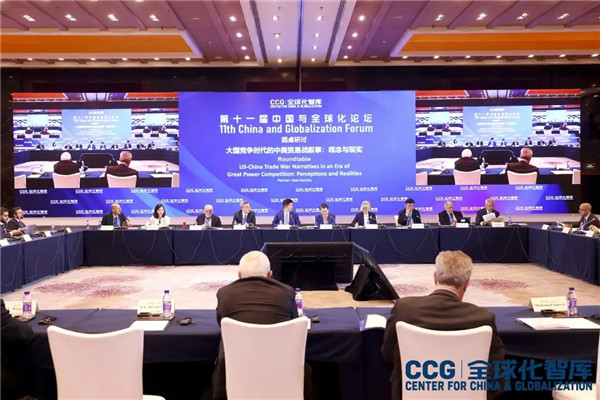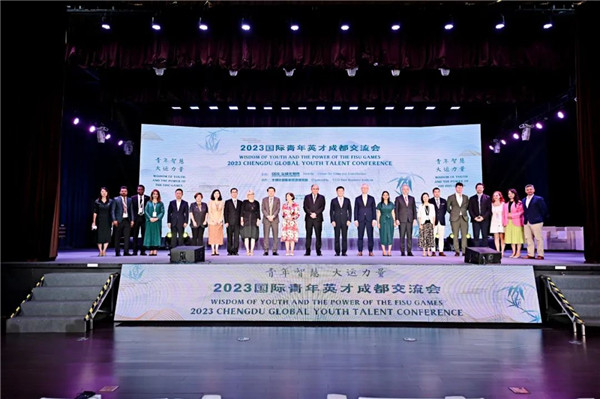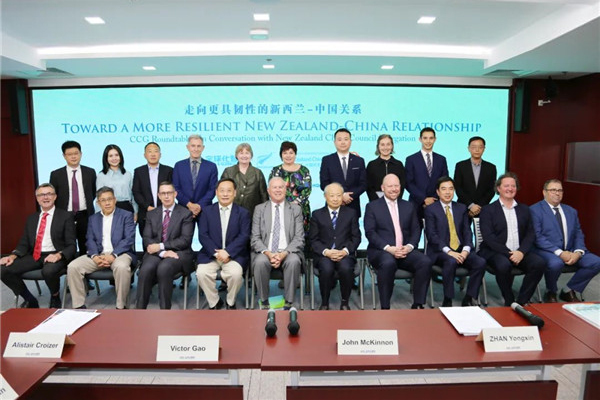
On August 24, 2018, a trade delegation of US companies led by David Barrosse, founder and CEO of Capstone LLC, a policy analysis and regulatory due diligence research firm, visited CCG to discuss the impact of the US-China trade war on the US and Chinese economies.
China and the US, the world’s two largest economies, are engaged in a fierce trade dispute. Since US president Donald Trump imposed tariffs on USD 60 billion worth of Chinese goods in March 2018, tensions between the US and China have escalated beyond tariff measures, with disruptions to global supply chains and impacts on investment. From 22-23 August, a Chinese delegation led by Vice Minister of Commerce Wang Shouwen met with U.S. representatives led by Under Secretary of Treasury for International Affairs David Malpass, the Ministry of Commerce said in a statement on its website. This round of trade talks aimed to offer a glimmer of hope for progress in resolving the conflict and improving trade relations between US and China.

To gain a deeper understanding of the concerns behind the trade war and to discuss potential solutions, the visiting Capstone delegation included many experts from the largest financial institutions in the US. Participants from CCG included He Ning, CCG senior fellow and former DG of MOFCOM’s Department of American and Oceanian Affairs; Sun Jie, non-resident senior fellow and former chairman of the Asset Management Association of China; Lu Xiang, non-resident senior fellow and research fellow of the Institute of American Studies at the Chinese Academy of Social Sciences; Tang Beijie, CCG deputy secretary-general and director of global initiatives; Xiao Huilin, CCG senior fellow; and Nie Ligao, CCG director of international communications. Li Weifeng, CCG executive secretary-general, gave welcoming remarks.
The meeting focused on issues related to the Sino-US trade war. Firstly, experts exchanged opinions on current Sino-US trade relations, the trade war’s potential impacts on investment, and potential resolutions to the conflict.
Based on a series of demands made by the Trump administration, the US delegation also asked which requests on IPR protection were acceptable for China, and what China could offer on financial supervision and corporate investment.

CCG experts emphasized that the trade war would cause major losses to both China and the US. To nurture better Sino-US relations, the US must change its strategies and reform the situation in the US. Otherwise, the trade war would create considerable damage to both China and the US. CCG experts also pointed out that data currently presented by the US does not accurately reflect the true value and benefits Sino-US trade.
CCG highlighted China’s commitment to continue gradually opening up its economy. When President Trump visited China in November 2017, China and the US signed deals in trade and economy worth $253 billion and China promised to further liberalize its financial sector. China has also suggested ways to import more US goods, steps that could help reduce the trade deficit. It was underlined that the trade war is not an appropriate solution to resolve the current US-China trade conflict.
Responding to CCG’s comments, the Capstone delegation noted that there is bi-partisan support in the US for use of tariffs. They also noted a lack of mutual understanding between the US and China, particularly with respect to their different economic systems. For example, many in the US remain unclear as to the structure of state-owned enterprises (SOE) in China and the role of the government in their supervision. This has caused misunderstandings, such as the impression among many in the US that SOE activities represent the will of the Chinese government.

At the end of the meeting, the Capstone delegation noted the value of the discussion and in particular the role of independent think tanks such as CCG as a channel to build bridges between US and Chinese companies and strengthen research to improve bilateral trade cooperation.







